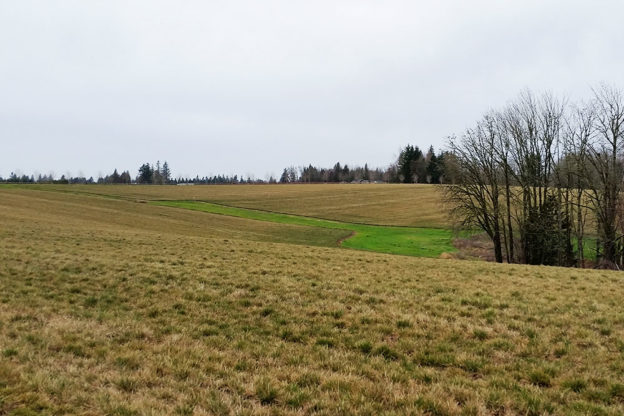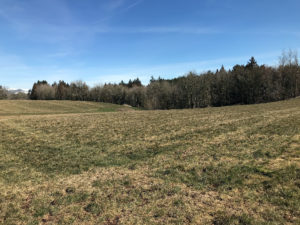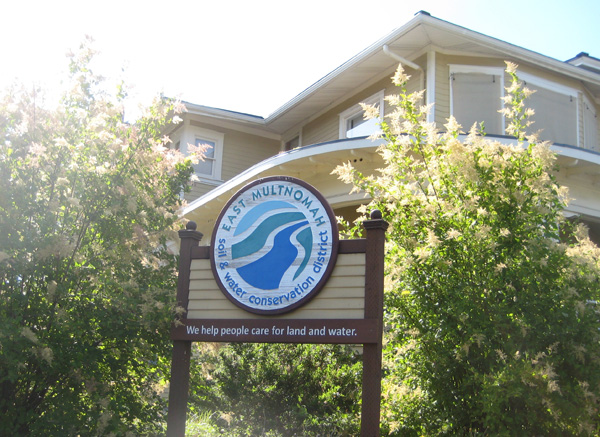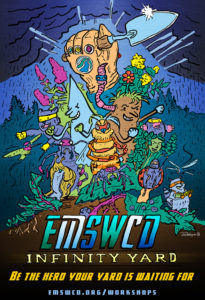East Multnomah Soil and Water Conservation District (EMSWCD) is pleased to announce that the working farmland protection component of its Land Legacy Program has closed on the acquisition of its first-ever working farmland easement. This month, EMSWCD secured the permanent protection of a 57-acre farm property in the Gresham area.
The acquisition of the easement occurred in conjunction with the sale of the property, which EMSWCD had owned since 2011. EMSWCD acquired the property when it was listed for sale and at risk of no longer being available for productive use by the local farming community. Proceeds from the sale will be used by EMSWCD to protect additional working farm properties.
A working farmland easement is a legally binding blueprint for the future of the property which ensures it will remain in active and highly productive agricultural use. The recently released U.S. Department of Agriculture Census of Agriculture underscores the need for these working farmland protection efforts, with Multnomah County losing an average of 2.5 acres of farmland a day during the period from 2012 to 2017.
- About 14 acres of the property is comprised of forest, steep slopes and streams which drain to the Sandy River
The easement for this property also seeks to address the growing challenges of farmland access and affordability. Farmland affordability is a challenge in Multnomah County, with the Census of Agriculture finding a 75% increase in the value of farmland and buildings from 2012 – 2017 and the second highest average farmland/farm building values of any county in Oregon. The easement incorporates provisions that ensure the property will remain in the ownership of a farmer and limits residential infrastructure that could make the property unaffordable for agricultural operators. As part of the transaction, EMSWCD also secured an option to acquire a working farmland easement on another 20-acre property owned by the buyers. Continue reading




